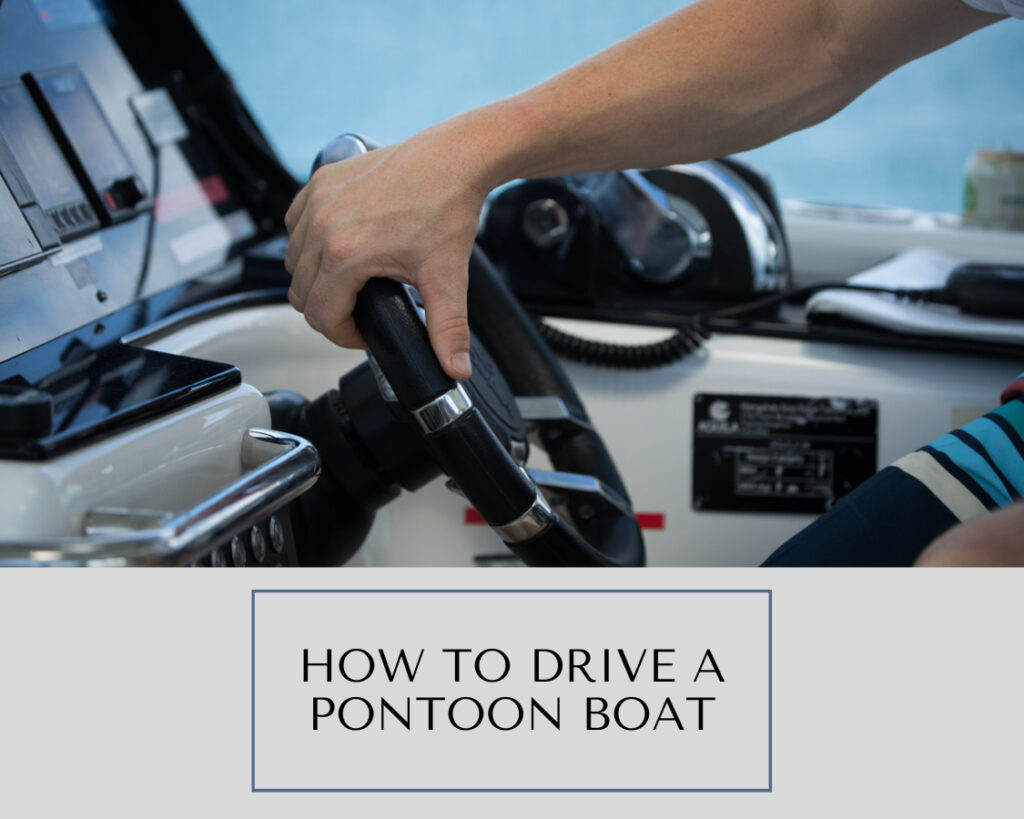The allure of owning a pontoon boat is undeniable. The spacious deck, perfect for soaking up the sun or sharing laughter with loved ones, beckons you aboard. The promise of endless summer days cruising across glistening waters paints a picture of pure bliss. But before you dive headfirst into this aquatic paradise, it’s crucial to weigh anchor and consider the full picture.
This guide will serve as your trusted compass, navigating you through the calm and choppy waters of owning a pontoon boat. We’ll explore the undeniable benefits, from the expansive decks that offer a haven for relaxation to the versatility that caters to diverse passions. Whether you’re an avid angler, a water sports enthusiast, or simply seeking a peaceful escape, a pontoon boat can be your gateway to endless possibilities.
However, much like hidden reefs beneath the surface, challenges exist. We’ll openly discuss these, including cost considerations, limitations in speed and maneuverability, and the potential burdens of storage and maintenance. By understanding both the sunshine and the occasional storm clouds, you can make an informed decision about whether a pontoon boat is the perfect vessel for your aquatic journey.
Pontoon Boat Pros
1. The Allure of Space and Comfort
Imagine yourself basking in the warm sun, comfortably sprawled on plush cushions as the gentle breeze carries the sound of laughter. The expansive deck of your pontoon boat becomes your own private oasis, a haven for relaxation and shared joy. Unlike traditional V-hull boats, pontoon boats boast a wider, flat deck design, offering unparalleled space and comfort that caters to everyone aboard. Whether you’re sunbathing with a good book, sharing stories with loved ones, or simply enjoying the breathtaking views, the spacious layout allows everyone to find their perfect spot and unwind.
Pontoon Boat Deck Sizes:
| Deck Length (ft) | Seating Capacity | Typical Activities |
|---|---|---|
| 16-18 | 6-8 | Relaxing, sunbathing, swimming |
| 20-22 | 10-12 | Fishing, swimming, tubing |
| 24-26 | 14-16 | Cruising, water sports, entertaining |
| 28+ | 18+ | Large gatherings, overnight trips, luxury amenities |
This vast space isn’t just for lounging, however. Pontoon boats offer a level of versatility that caters to diverse passions and interests. Imagine transforming your deck into a platform for endless adventures.

2. A Versatile Playground for Every Passion
Are you an avid angler yearning to cast your line into pristine waters? Pontoon boats can be equipped with features like live wells, rod holders, and fishfinders, making them ideal for your next fishing expedition. Thrill-seekers can indulge in exhilarating water sports like tubing, wakeboarding, and waterskiing. Pontoons offer ample space for storing all your equipment and even come with features like wakeboard towers and ski tow bars for a truly thrilling experience. For those simply seeking a peaceful escape, the spacious deck provides the perfect setting for soaking up the sun, enjoying the calming rhythm of the waves, and creating cherished memories with loved ones.
Pontoon Boat Activities and Features:
| Activity | Feature | Example |
|---|---|---|
| Fishing | Fishing rod holders, livewells, baitwells | Fishfinder, trolling motor |
| Swimming | Swim ladders, changing rooms | Diving platform, sundeck |
| Water Sports | Ski tow bar, wakeboard tower | Tube storage, built-in cooler |
| Entertaining | Wet bar, refrigerator, sound system | Grill, outdoor lighting |
The benefits of owning a pontoon boat extend far beyond the edge of the water. Their ease of operation and minimal maintenance requirements make them ideal for boaters of all experience levels.

3. A Low-Maintenance Oasis
Unlike complex V-hull boats, pontoons are designed with simplicity in mind. Their simple controls and shallow draft make them easy to handle and navigate, even for first-time boaters. Additionally, their robust aluminum construction requires minimal upkeep, allowing you to spend more time enjoying the water and less time tinkering with maintenance.
Additional Pros of Owning a Pontoon Boat:
| Feature | Benefits |
|---|---|
| Easy Operation | Suitable for beginners and experienced boaters |
| Low Maintenance | More time enjoying the water and less time tinkering |
| Durable and Long-Lasting | Years of reliable performance and enjoyment |
| High Resale Value | Good return on investment if you decide to sell |

Cons Of Pontoon Boats
While the spacious decks, versatility, and ease of operation of pontoon boats are undeniable attractions, it’s important to approach ownership with a clear-eyed understanding of the potential drawbacks. Before setting sail, let’s delve into the cons of owning a pontoon boat, ensuring you make an informed decision that aligns perfectly with your needs and preferences.
1. Cost Considerations
One of the most significant downsides of pontoon boats is their price tag. They are typically more expensive than other types of boats, with prices varying depending on size, brand, and features. This initial investment can be a significant hurdle for some potential buyers, and it’s vital to factor in additional costs associated with ownership, such as storage, insurance, and maintenance.
Estimated Costs of Pontoon Boat Ownership:
| Cost Category | Annual Estimate |
|---|---|
| Boat Purchase | $15,000 – $50,000+ |
| Storage | $3,000 – $5,000 |
| Insurance | $500 – $1,000 |
| Maintenance | $500 – $1,000 |
| Fuel | Varies depending on usage |
2. Limited Speed and Performance
While pontoon boats offer a comfortable and stable ride, they aren’t known for their speed and agility. Their flat deck design and powerful engines prioritize stability and comfort over high-speed performance. This can be a drawback for boaters who enjoy thrilling water sports or exploring remote areas quickly.
3. Fuel Consumption
Due to their size and powerful engines, pontoon boats tend to consume more fuel than other types of boats. This can significantly impact your budget, especially when fuel prices are high. Consider fuel efficiency and plan your trips accordingly to minimize fuel consumption.
4. Limited Draft
The shallow draft of a pontoon boat, while initially appealing for navigating shallow waters, can also present challenges. It makes them less stable in rough conditions and can make sharp turns difficult. Additionally, the low clearance can make them vulnerable to damage when encountering submerged obstacles.
5. Storage and Transportation
Pontoon boats, by their very nature, are larger and wider than other types of boats. This can make them challenging to store and transport. You’ll need to consider dedicated storage options like a boat slip, driveway space, or a trailer, and ensure you have the necessary equipment and manpower to move your boat safely.
6. Limited Customization Options
While some pontoon models offer a degree of customization, they don’t typically allow for the same level of personalization as other types of boats. This can be a drawback for boaters who want to put their own unique spin on their vessel. However, embracing the standard features and considering available accessories can still create a comfortable and personalized pontoon experience.

Final Thoughts
With their spacious decks, versatility, and ease of operation, pontoon boats offer a compelling option for anyone seeking a comfortable, low-maintenance vessel for creating lasting memories on the water. However, before you dive headfirst into pontoon ownership, it’s crucial to weigh the pros and cons carefully to ensure this floating oasis aligns perfectly with your needs and preferences.
FAQs
Are pontoon boats good for beginners?
Yes, pontoon boats are generally considered good for beginners due to their stability, ease of operation, and shallow draft. Their flat deck design makes them easy to maneuver and walk around on, while the simple controls are straightforward to learn. However, it’s always recommended to take boating safety courses and familiarize yourself with the boat’s operation before venturing out on the water.
How much does it cost to maintain a pontoon boat?
The cost of maintaining a pontoon boat can vary depending on its size, engine type, and usage. However, you can expect to budget between $500 and $1,000 annually for routine maintenance, including cleaning, oil changes, and engine checks. Additionally, you may need to factor in the cost of occasional repairs and replacements for parts like batteries, spark plugs, and propellers.
How much fuel does a pontoon boat use?
The fuel consumption of a pontoon boat depends on several factors, including the size of the engine, boat speed, and sea conditions. Generally, larger boats with more powerful engines will consume more fuel. Expect to spend more on fuel when cruising at higher speeds or battling rough waves.
Can I sleep on a pontoon boat?
Some larger pontoon models come equipped with overnight accommodations, including convertible seating areas or dedicated cabins. However, smaller boats may not offer comfortable sleeping arrangements. Consider the size and features of the specific boat model you’re interested in to determine its suitability for overnight trips.
What kind of activities can I do on a pontoon boat?
Pontoon boats offer a platform for a variety of water-based activities. Popular options include sunbathing, swimming, fishing, tubing, wakeboarding, and waterskiing. Some models are even equipped with features like wet bars, grills, and sound systems, making them ideal for entertaining and hosting parties.
How do I store a pontoon boat?
There are several options for storing a pontoon boat, including:
Boat slip: This is the ideal option for regular boaters with easy access to water.
Dry dock: This is a covered storage facility that protects your boat from the elements.
Trailer: This allows you to store your boat at home and transport it to different locations.
Backyard: This is a good option for smaller boats if you have the space.
Is it worth buying a pontoon boat?
Whether or not buying a pontoon boat is worth it depends on your individual needs and preferences. If you value comfort, space, and versatility and enjoy spending time on the water with family and friends, then a pontoon boat can be a worthwhile investment. However, if you’re on a tight budget, prioritize speed and performance, or only plan to use the boat occasionally, other boat options might be better suited to your needs.



